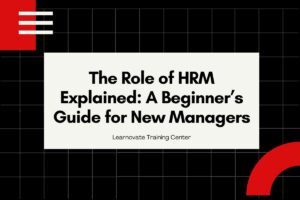Passing the OET can open doors to a world of global healthcare opportunities. But with so many resources and strategies out there, knowing exactly how to study for OET effectively can feel like searching for a needle in a haystack. Whether you’re a nurse, doctor, pharmacist, or physiotherapist, preparing with a focused strategy is what sets high scorers apart from the rest.
The OET isn’t your typical English test. It’s tailor-made for healthcare professionals, and it simulates real medical communication scenarios. This means your preparation needs to be just as smart and specialized. In this blog, we’re giving you 10 practical, proven tips that will supercharge your OET preparation. Each one is grounded in real results and designed for serious success.
Know the OET Format Inside Out
Before diving into books and materials, understand the battlefield. The OET is divided into four sub-tests: Listening, Reading, Writing, and Speaking. Each is designed to assess your English in professional healthcare situations.
- Listening: 40 minutes of medical scenarios and conversations
- Reading: 60 minutes of healthcare-related texts
- Writing: 45 minutes to write a letter, usually a referral or discharge letter
- Speaking: 20 minutes of role-playing as a professional with a simulated patient
Knowing the format well reduces anxiety and boosts performance. Treat the OET like a patient — the better your diagnosis (understanding), the better your treatment (preparation).
Create a Realistic Study Schedule
We’ve all been there — starting with enthusiasm and then burning out a week later. Consistency beats intensity. So, don’t aim for 8 hours a day if you can’t sustain it. Instead, block 1-2 hours daily and stick with it.
Here’s a weekly sample:
| Day | Focus Area |
|---|---|
| Monday | Listening Practice + Vocabulary |
| Tuesday | Reading Tasks + Grammar |
| Wednesday | Writing Practice |
| Thursday | Speaking Practice with a Partner |
| Friday | Full-length Mock Test |
| Saturday | Review Mistakes + Relaxation |
| Sunday | Light Reading or Speaking |
Make your schedule your own. Be honest with your time and energy.
Use Only Authentic Practice Materials
Using irrelevant English study materials is like preparing for surgery with a cookbook — ineffective and misleading. Practice with resources that mirror the actual OET exam.
Some trusted sources include:
- The official OET website
- Cambridge OET practice books
- Materials from the Learnovate training center
And yes, free YouTube videos are great — but choose wisely. Look for trainers who are certified and specialize in OET.
Consider Expert Coaching: It’s a Game Changer
Self-study works — until it doesn’t. Many students hit a plateau, not because they lack ability, but because they lack feedback.
Joining a program like OET Training in Dubai offered by Learnovate can make a massive difference. You get:
- One-on-one attention
- Real-time performance analysis
- Exposure to up-to-date exam trends
- A study plan tailored to your strengths and weaknesses
If you’re serious about getting your desired grade on the first attempt, expert help is your shortcut to success.
Master Time Management for Each Section
Each OET section has its own timing pressures. Practicing without timing is like preparing to swim without water.
Some strategies:
- Use a timer for Reading Part C — this is where most candidates fall short
- Allocate 5 minutes at the end of the Writing task to review your letter
- Practice speaking within the role-play time (5 minutes prep + 5 minutes dialogue)
Simulate test conditions often. The more comfortable you are with timing, the calmer you’ll be on exam day.
Focus on Weak Areas First, But Don’t Neglect Strengths
We all love practicing what we’re good at — but it’s your weakest section that will determine your fate.
Use mock tests to identify which area needs the most work. Then spend 70% of your time on that skill.
Tip: Don’t stop practicing your strong areas completely. Maintain your edge by revisiting them weekly.
Expand and Specialize Your Vocabulary
OET demands more than general English. You need clinical vocabulary, especially verbs and terms that relate to patient care and treatment.
Here’s a quick exercise:
- Write 20 key verbs from a sample discharge letter
- Practice using them in different medical contexts
- Record yourself and review your pronunciation
Also, make your own glossary of terms for each profession. Use flashcards, apps like Quizlet, or even sticky notes around your room!
Don’t Skip Mock Tests – And Always Review Them
Mock tests are your rehearsal. Take them seriously. But here’s the catch — most candidates skip the most valuable part: reviewing their mistakes.
Every mock test is an opportunity. Analyze:
- Why you lost time in Reading
- What made your writing unclear
- Where your Speaking lost fluency or coherence
Use a feedback sheet to track errors, especially if you’re learning through a trusted training provider like Learnovate.
Stay Updated With OET Announcements
OET updates its exam style and scoring systems occasionally. Always stay in the loop.
Follow:
- The OET Official Blog
- YouTube Channels by certified OET trainers
- Forums and student communities
One recent change? The writing criteria have become stricter regarding structure and grammar. Stay updated so you’re never caught off guard.
Take Care of Your Mind and Body
No strategy works if you’re sleep-deprived and anxious. Balance is the key.
Simple health tips:
- Sleep at least 7 hours
- Eat brain foods: nuts, berries, omega-3s
- Meditate for 10 minutes a day
- Exercise lightly — even a daily walk helps
Stress sabotages memory and language processing. So, prioritize wellness as much as vocabulary.
How to Study for OET Effectively – A Final Word
Let’s bring it all together. You now know exactly how to study for OET effectively. From mastering time to seeking expert help, every strategy here is backed by success stories.
And if you’re looking for real results, personalized training, and a proven roadmap, join the Learnovate training center — your trusted partner in OET success.
Because the truth is, passing OET isn’t just about English. It’s about the right mindset, the right materials, and the right mentorship.
FAQs
Is OET accepted globally?
Yes, OET is accepted in the UK, Australia, New Zealand, Ireland, UAE, and many other healthcare systems.
Can I retake only one section of the OET?
Yes. If you fail just one sub-test, you can retake only that part.
Is grammar important in OET?
Absolutely. Especially in the Writing and Speaking modules, grammar impacts your score directly.
What’s the passing score for OET?
A score of 350 or above in each sub-test is typically considered a pass.
How long should I prepare for OET?
3 to 6 weeks is enough for most candidates — if you follow a focused plan and possibly enroll in a structured course like Learnovate’s.
Is OET more difficult than IELTS?
Not necessarily. For healthcare professionals, OET is often easier because it uses familiar language and clinical contexts.
Conclusion
To summarize: OET success doesn’t depend on how smart you are. It depends on how smart you prepare. When you know how to study for OET effectively, you’re already halfway to your goal.
Now it’s your move.
Take control of your preparation. Build your plan. And if you want to walk this journey with a trusted expert, explore OET Training by Learnovate — and start writing your own success story.













